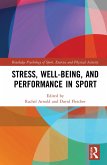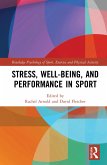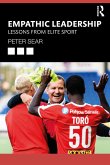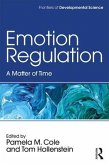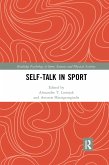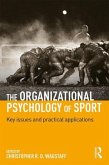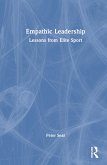Feeling states, including emotional experiences, are pervasive to human functioning. Feeling states deeply influence the individual's effort, attention, decision making, memory, behavioural responses, and interpersonal interactions. The sporting environment offers an ideal setting for the development of research questions and applied interventions to improve the well-being and well-functioning of the people involved.
This ground-breaking book is the first to offer cutting-edge knowledge about contemporary theoretical, methodological, and applied issues with the contributions of leading researchers and practitioners in the field. Feeling states in sports are comprehensively covered by adopting an international and multi-disciplinary perspective.
Part I covers most relevant conceptual frameworks, including emotion-centred and action-centred approaches, challenge and threat evaluations, an evolutionary approach to emotions, and the role of passion in the experience of emotion. Part II focuses on interpersonal aspects related to emotions and regulation, encompassing social and interpersonal emotion influence and regulation, social identity and group-based emotions, and performance experiences in teams. Part III presents applied indications surrounding emotional intelligence training, and emotional regulation strategies including imagery, self-talk, the use of music, mindfulness, motor skills execution under pressure, self-regulation in endurance sports, and the use of technology. Finally, Part IV examines issues related to athlete well-being, including the role of emotions in sport injury, emotional eating, and mental recovery.
Feelings in Sport: Theory, Research, and Practical Implications for Performance and Well-being is an essential source for sport psychology practitioners, researchers, sports coaches, undergraduate and postgraduate students.
This ground-breaking book is the first to offer cutting-edge knowledge about contemporary theoretical, methodological, and applied issues with the contributions of leading researchers and practitioners in the field. Feeling states in sports are comprehensively covered by adopting an international and multi-disciplinary perspective.
Part I covers most relevant conceptual frameworks, including emotion-centred and action-centred approaches, challenge and threat evaluations, an evolutionary approach to emotions, and the role of passion in the experience of emotion. Part II focuses on interpersonal aspects related to emotions and regulation, encompassing social and interpersonal emotion influence and regulation, social identity and group-based emotions, and performance experiences in teams. Part III presents applied indications surrounding emotional intelligence training, and emotional regulation strategies including imagery, self-talk, the use of music, mindfulness, motor skills execution under pressure, self-regulation in endurance sports, and the use of technology. Finally, Part IV examines issues related to athlete well-being, including the role of emotions in sport injury, emotional eating, and mental recovery.
Feelings in Sport: Theory, Research, and Practical Implications for Performance and Well-being is an essential source for sport psychology practitioners, researchers, sports coaches, undergraduate and postgraduate students.


